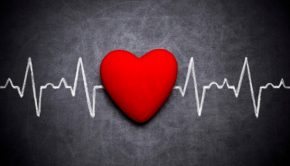Our Brains and Hearts are Affected by Trauma
Trauma affects how our brain, heart and sympathetic nervous system function through the stress response. Energy medicine techniques help reverse the effects of trauma on the heart and brain by reducing the effects of stress and emotional imbalance. These techniques also improve the heart-brain connection to reduce the effects of trauma.
There are three main areas of the brain affected by trauma: the amygdala, hippocampus and prefrontal cortex. The amygdala’s main functions include emotional control, memory, self-protection, self-preservation and fight-or-flight responses. After a traumatic experience, the amygdala becomes hyperactive to keep the individual safe. This heightened sense of environment and awareness of potential harm is a positive aspect for self-protection. The negative aspects may result in an inability to relax, fall asleep and be at peace.
The hippocampus (part of the limbic brain, along with the amygdala), assists in memory, emotions and motivation. Trauma victims often have smaller hippocampi than non-traumatized individuals, and this may correlate to elevated levels of stress hormones released during and after traumatic events. The hippocampal cells are likely destroyed by prolonged exposure to high levels of these hormones, so memories and emotional control can be negatively affected.
The prefrontal cortex of the brain performs executive functions such as controlling emotions, making decisions and solving problems. It helps us focus our attention, anticipate events, control impulses and emotions, coordinate and adjust complex behaviors, and plan. The prefrontal cortex forms our personality, goals and values. For individuals that have been traumatized, fear and other emotions are not easy to regulate. Out-of-control fear leads to panic and anxiety, so that even in safe situations, a traumatized individual can be anxious and experience panic attacks because of a perceived threat.
Heart rate variability, the ability of the heart rate to change or adapt to changing situations and events, is also affected by trauma. High heart rate variability indicates the body adjusts easily to life situations and environmental conditions. Access to the parasympathetic mode (or peace) is controlled by the vagus nerve, which regulates the heart’s ability to be at peace. Trauma can reduce the ability of the vagus nerve to influence the heart and exhibit high heart rate variability, which can eventually lead to cardiovascular disease.
For more information about Dr. Deatly, call 201-925-1046 or email Anne.Deatly@gmail.com.




























